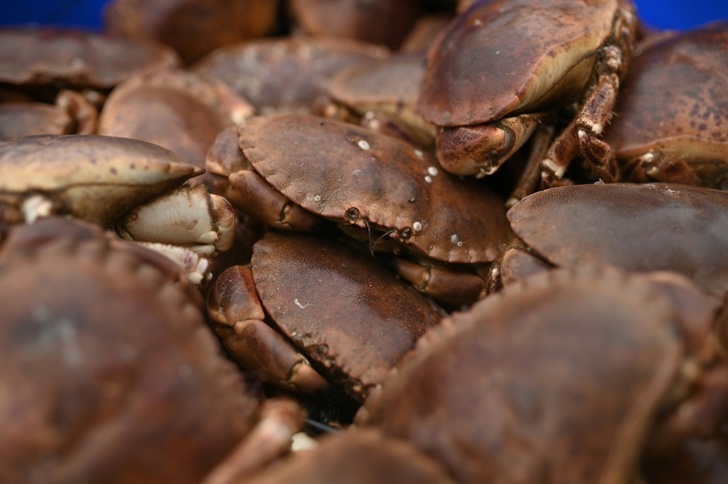What caused the mass death of crustaceans off the coast of northeast England in late 2021? A new finding on Friday brought relief to the government, which is developing a flagship new "freeport" in the region.
The customs-free zone in Teesside is one of several planned that are aimed at showing off Britain's "post-Brexit freedoms" in trade, according to the government.
Some in parliament called this week for dredging at that and other freeport sites to be suspended in case it was the cause of the die-off of crabs, lobsters and other crustaceans from October to December 2021.
A first study by government scientists into the mystery phenomenon blamed a "naturally occurring harmful algal bloom" stretching from the towns of Hartlepool to Whitby.
Then, a study by academics backed by the fishing industry pointed to an industrial pollutant called pyridine, possibly linked to the dredging.
Teesside has historically been associated with heavy industry, particularly chemical plants.
But the latest government-commissioned study by independent experts said it was "as likely as not that a pathogen new to UK waters" was the cause.
The experts found that algal bloom was "unlikely", and it was "very unlikely" that pyridine or another toxic pollutant caused the crab deaths.
Maintenance dredging, required to keep the port open, was also "very unlikely" as the cause, failing to generate enough pyridine or other toxic chemicals to kill the crabs.
Patrick Vallance, the government's chief scientific adviser, welcomed the report.
"Whilst with the current data there cannot be a definitive answer, the options for possible causes and an analysis of likelihood are clearly laid out in the report," he said.
jit/phz/gil
© Agence France-Presse
Your content is great. However, if any of the content contained herein violates any rights of yours, including those of copyright, please contact us immediately by e-mail at media[@]kissrpr.com.
Source: Story.KISSPR.com

